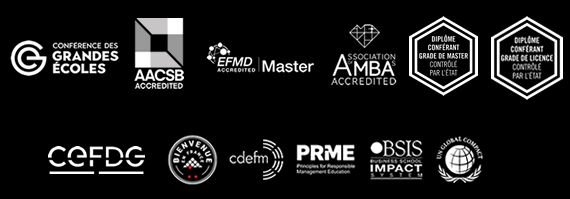In information systems (IS) research, the socio-material lens offers a compelling perspective: it emphasizes that agency arises not as a property of humans or technology in isolation but through their emergent interaction. Édouard Pignot, professor and researcher at EMLV, contributes to this discourse by integrating affect into the socio-material framework, offering a richer understanding of IS practices.
His research enriches the socio-material perspective by integrating effect and negative ontology, offering a comprehensive framework for understanding IS practices. A tribune published at FNEGE Médias.
The Sociomaterial Perspective
Sociomateriality, a concept in IS and organizational studies, underscores the inseparable connection between the social (humans) and the material (technology).
It reveals how these elements co-shape actions and decisions. However, traditional approaches often focus on cognitive aspects, overlooking the role of emotions and affective motivations. Édouard Pignot argues that this cognitive orientation leaves the socio-material perspective incomplete.
The Role of Affect and Negative Ontology
Édouard Pignot draws on an affectively informed negative ontology to address this gap.
This framework urges researchers to look beyond visible interactions to the deep-seated, affective motivations shaping how actors engage with material objects, such as technologies and discourses. These motivations, though often unconscious, contribute significantly to socio-material outcomes.
By incorporating affect, Édouard Pignot proposes a nuanced view of relational agency—how humans and technologies interact dynamically, driven by cognitive processes and emotional undercurrents. This dual focus broadens the analytical scope, allowing for a deeper exploration of how IS practices unfold in real-world contexts.
Empirical Illustrations: Affect in Action
To demonstrate this framework, Pignot and his co-author, Professor Mark Thompson, present a case study involving the design of a Geographic Information System (GIS) for earth scientists.
The GIS creates a virtual world, simulating geological fieldwork using data from the Lake District in the UK. The project revealed varying affective connections among stakeholders:
- Developers embraced features like flying or time-saving teleports, engaging with the technology in a way reminiscent of gaming environments.
- Executives expressed caution, concerned about perceptions of “gamification” potentially alienating industry decision-makers.
- Clients, including geologists, displayed hesitance due to their attachment to traditional fieldwork methods, while others, like educators, saw the virtual world as an opportunity to appeal to younger generations.
These interactions highlight how emotions and attachments influence decision-making and technology adoption, often in subtle, unconscious ways.
Implications for Research and Practice
Édouard Pignot’s study opens new pathways for IS research by bridging sociomateriality and affect. This perspective challenges researchers to:
1. Expand Ontological Horizons: Acknowledge the interplay of visible and invisible forces in shaping socio-material outcomes.
2. Adopt Methodological Innovations: Explore methods that capture affective dimensions in IS practices.
3. Inform Practical Applications: Design systems and policies considering users’ affective connections with technology.
By examining the affective dimensions of human-technology interactions, this study provides valuable insights for researchers and practitioners alike, paving the way for more inclusive and dynamic analyses in information systems and organizational studies.





















